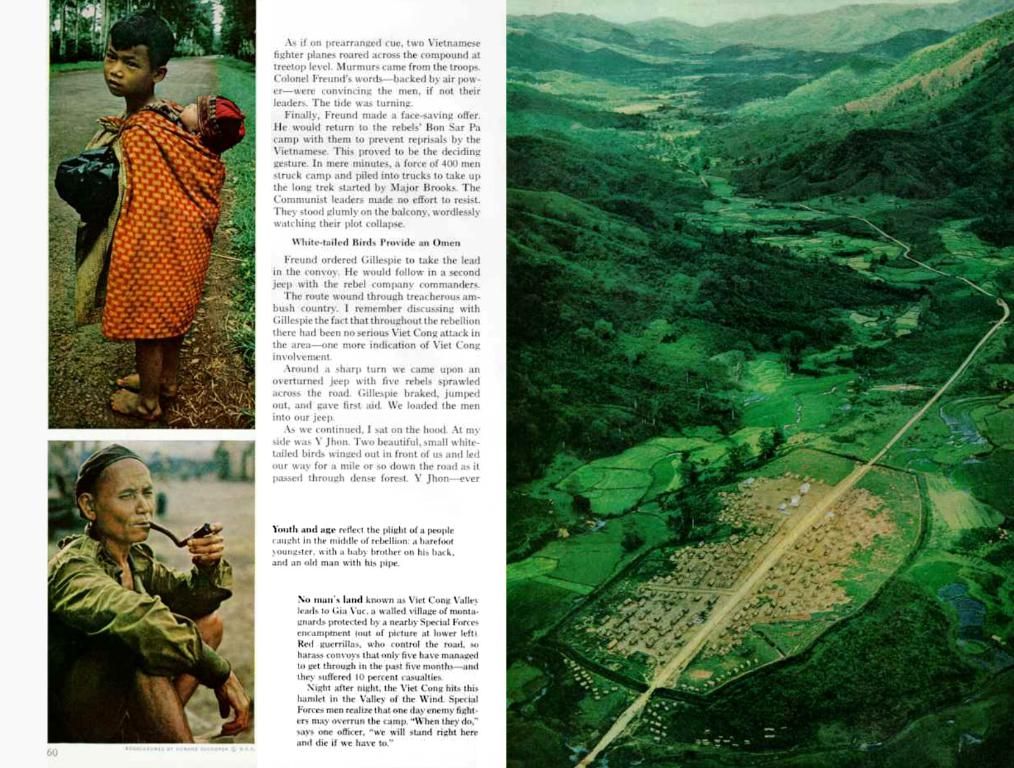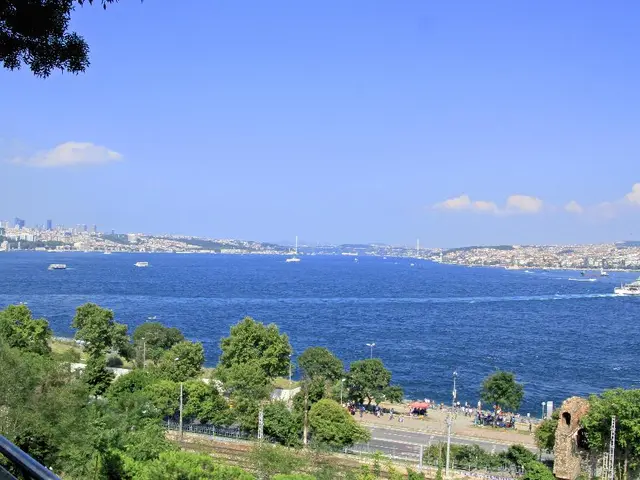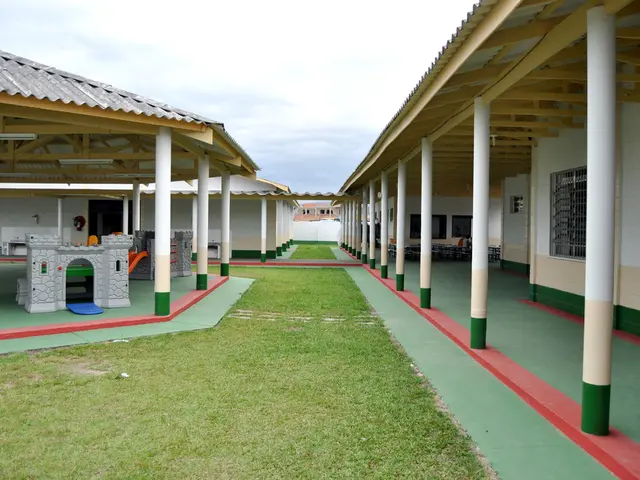Cambodia upholds stance on border disputes with Thailand
Cambodia Stays Put on the Mum Bei Border
In a strong statement, Cambodia refused to budge from the Mum Bei area despite Thailand's plea, upholding its sovereignty. Over the last few days, tension has been brewing between Thai and Cambodian forces in the Chong Bok area of Ubon Ratchathani province.
Cambodia's Defence Ministry, in a post on their official Facebook page, declared their position. After a meeting with his Thai counterpart, Defence Minister Tea Seiha acknowledged that both parties agreed to de-escalate border tensions. However, they flat-out rejected Thailand's appeal to pull troops from the Mum Bei area, stating that it falls within Cambodian territory, where they've been stationed since the beginning.
In addition, the meeting parties claimed that their differing scales of maps make it challenging to establish common ground for border stability. Nevertheless, they reaffirmed their commitment to abide by the 2000 Memorandum of Understanding, just like they've always done.
Cambodia has taken a tougher stance by submitting the dispute over four areas, including Mum Bei, to the International Court of Justice (ICJ) in The Hague, Netherlands. They seek a resolution to the conflict and a definitive border demarcation. Despite this, Thailand refrained from acknowledging the ICJ's jurisdiction in these disputes.
Cambodia maintains its focus on peace and stability for the well-being of inhabitants on both sides. Both countries will continue negotiations through established channels, such as the General Border Committee, the Joint Boundary Committee, and the Regional Border Committee.
Recent reports circulating about international border crossings closing, JBC meetings being called off, and other unofficial claims have been dismissed, seeking to protect the morale of both militaries and populations.
Related Headlines:1. Thailand's military seizes control of border checkpoints with Cambodia2. Gold and Bitcoin reach record highs as investors flock to safety3. Protests filed against Cambodian border violations exceed 4004. Man lays claim to 12 million baht found in trash, states he's stored it since 20205. Army Chief orders closure measures in response to Cambodian incursions
Enrichment Insights:- The ongoing border disputes between Thailand and Cambodia, specifically the Mum Bei area, present a complex and fluid situation.- Recently, Cambodia consented to withdraw its troops from the contested Mum Bei area due to military talks with Thailand, a significant step in de-escalating tensions that arose from a confrontation on May 28 resulting in the death of a Cambodian soldier [3][4].- Cambodia submitted the border disputes, including those involving Mum Bei, to the International Court of Justice (ICJ) to seek an impartial resolution as bilateral talks seem inadequate for a lasting solution [3][4].- Thailand opposed the ICJ's jurisdiction over the disputes and favors bilateral negotiations but agreed to meet with Cambodia under the Joint Boundary Committee framework on June 14 to discuss the conflict [1][3].- Despite persistent tensions, both Thailand and Cambodia vowed to work towards resolution through dialogue, although conflicts in messaging have highlighted the challenges in achieving unity on the issue [1][4].
- The politics of border disputes between Thailand and Cambodia have intertwined with international affairs, as Cambodia has taken the matter to the International Court of Justice (ICJ) over four contested areas, including Mum Bei, to seek a definitive resolution.
- The ongoing tension between Thai and Cambodian forces in the Mum Bei area, fueled by differing border maps, has been mirrored in the business sector, as investors show interest in assets related to war-and-conflicts, including gold and Bitcoin.
- General news outlets are closely following the ongoing negotiations between Thailand and Cambodia, as both countries continue discussions through established channels like the Regional Border Committee and the General Border Committee, aimed at resolving international border crossings and growing military tensions.






